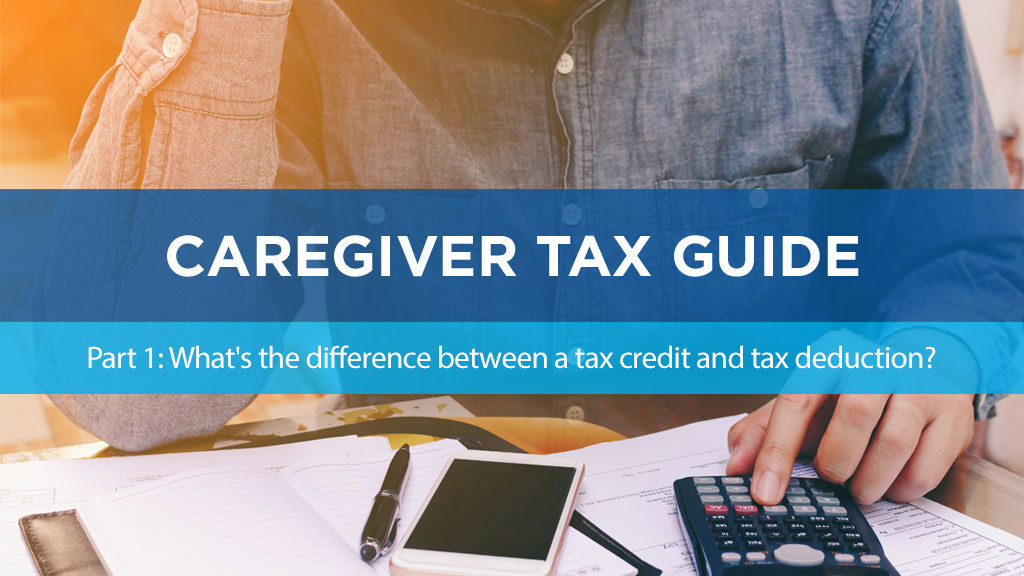
Caregiver tax guide: What’s the difference between a tax credit and tax deduction?
March in Ontario can be a drag: Our New Year’s resolutions are losing their spark, flu season has taken a toll, and now we’re about to be hit by the dreaded Tax Season. Not to worry, we have some information to help you through the Tax Blues. The good news: If you’re a caregiver in Ontario, you may be eligible for caregiver tax credits!
We reached out to Glenn Hayter of Hayter and Associates Inc., Certified Financial Planner, to get his insights on the new Canada Caregiver Credit, the Ontario Caregiver Credit and how they might apply to you and your family. This is the first in a series of three articles to help you navigate the world of tax refunds in Ontario as a caregiver.
Caregiver tax credits in a nutshell
As Glenn explains, “our tax system works with deductions and credits Deductions are a subtraction from income such as moving expenses, RRSP contributions, childcare expenses and others. Credits are a credit against income taxes owed on your taxable income. Medical expenses above the individual threshold reduce the amount to taxes owed on the taxable income.”
In 2017, the government consolidated three existing tax credits into the new Canada Caregiver Credit. Eligible claimants will be credited $6,883 for infirm dependents who are parents, grandparents, siblings, aunts, uncles, nieces, nephews or adult children. If the claimant is a spouse, common-law partner, or adult child under the age of 18, the credit is $2,150.
Read more about the Canada Caregiver Credit, and how it applies to caregivers!
Tracking caregiver expenses to claim on your tax return
When it comes to deductions and credits, Glenn cautions caregivers to ensure that expenses are tracked.
“The key thing is to track every expense that occurs and then review the expenses at the end of the year to determine if they qualify for inclusion in the credit calculation. The medical expenses most forgotten are the mileage claims and meal claims.”
What kind of credits can you claim as a caregiver? Read on.
Our caregiver tax refund series continues:
- Caregiver tax guide: The Canada Caregiver Credit – What’s New?
- Caregiver tax guide: Your caregiver tax credit questions, answered
We sincerely hope that this three part series helps to give you some insights into how caregivers can access tax credits in Ontario! What other tax refund questions or resources do you have? Get in touch through email at communications@alzheimeront.org, on our Facebook page or on Twitter! We’d love to hear from you.
Written in consultation with:
Glenn Hayter of Hayter and Associates Inc.
Website: www.hayter.on.ca
The Alzheimer Society suggests that you seek professional advice to answer any specific questions about your tax situation.